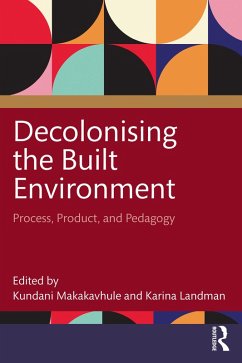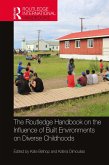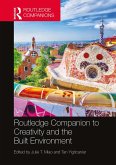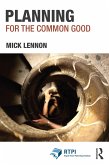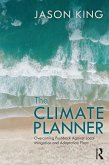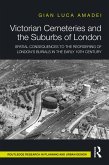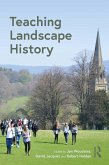Decolonising the Built Environment: Process, Product, and Pedagogy provides an important and much-needed comprehensive overview of how decolonisation is shaping the built environment in theory, in practice, and as a process/project today. The contributors provide an inclusive and trans-national conversation between a diverse set of academics, design practitioners and thinkers, and activists. This book is structured around three thematic and practical categories: Part 1 studies decolonisation conceptually; Part 2 studies decolonisation as a process; and Part 3 studies the products of decolonisation as materialised in the form of buildings, urban design, planning, policy, and social practices.
Essential reading for students, teachers, and practitioners, this book presents the project of decolonisation as a pedagogy and an ongoing process.
Dieser Download kann aus rechtlichen Gründen nur mit Rechnungsadresse in A, B, BG, CY, CZ, D, DK, EW, E, FIN, F, GR, HR, H, IRL, I, LT, L, LR, M, NL, PL, P, R, S, SLO, SK ausgeliefert werden.

